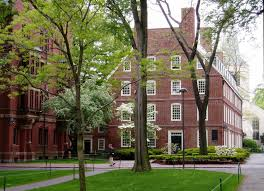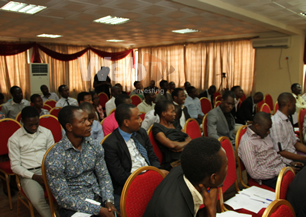SAGAMITE: How to judge prestige of universities

Sagamite is a bachelors graduate from one of the UK’s elite universities after an early life in Nigeria. He is an experienced management consultant that has worked with firms in a diverse range of industries both in public and private sector. His experience provides him with a catalogue of versatile and arcane knowledge. His current interests include logical structure of opinions/arguments, entrepreneurship and human psychology. He prides himself on his organic, objective and independent thinking, so the audience should expect a significant number of his articles to be contra-popular belief. He is one of Nigeria’s leading objective-Contrarian thinkers about life’s generally accepted conventional wisdom.
Many students hope and aim to be accepted and consequently attend a top university so as to enhance their chances of success in life and, to be frank, also massage their ego.
Those that engage in this intent, and don’t make the error of judgment I have seen many Nigerians make of “university na university jor”attitude, are thinking in the right way. The reality of life is that the institution you attend would be a key perception of your intellect before you speak and the elimination of negative interpretation biases in the perception of your intellect after you speak. Perception is reality!
That is just human nature. Human nature has evolved to the point of us using other trusted sources of information to reduce the level of work we have to do in mentally processing information ourselves. The institution you also attend would also be a key determinant of your odds of success, especially in many advanced nations, and also a determinant in the increasingly globalisation of the jobs market for the most highly skilled.
Now to judge prestige of universities can be difficult (especially so for those at the age range of getting their first undergrad). Many times, most look at the established different local and international league tables and base their opinion on those. That said there are some anomalies in those tables, each has its own different biases. And secondly, the people that follow these tables religiously are usually students, governments and academics.
Many of those that screen CVs and interview these students hardly ever look at these league tables. Of the few that do, it would be the ones that attended a top or good university, who are curious where their own alma mater ended up on the table. To be frank and brutally honest, majority of those that are the gatekeepers (i.e. HR) to getting your CV in front of an interviewing hiring manager are usually not of the calibre of top university graduates and don’t really bother to look at these tables religiously. They already have an imprint of top university brands in their brains. Same even applies to the hiring managers. They too have a list of universities they knew as“top” in their era (15 to 35 years ago). They hardly follow the year to year variations of league tables considering their busy schedule if it is a top firm.
I will give a quick overview of 3 of the most prominent global university league tables and their focus and biases:
ARWU – Focused on long-term, hard science research qualifiers. So a useful table for those interested in postgraduate research in STEM fields, especially those who want to work with or be taught by internationally elite STEM academics.
Times Higher Education– Focused on medium-term overall (teaching & research) reputation and performance across most academic subject fields. So it is a useful table for policy-makers and stakeholders to understand the overall relative reputation and performance of their relevant local institutions.
QS – Focused on short-term subjective reputation of institutions, hence a useful table for local and international students interested in institutions that would maximise their perceptive value in the global and local job market.
Those are useful if you the criteria you seek in making your choice are aligned to their methodology.
If I was to do a league table to focus on prestige, I believe my approach would be more robust than the existing providers if the data can be gathered (I doubt it can). I would follow the following model when assessing university options:
What goes in à What happens inside à What comes out
1) In terms of what goes in, I think you will hardly go wrong if you assess the following:
Average entry grades– Top universities tend to request high grades from applicants. So look at the average entry grades of their students. The caveat of this is that you should realise the following might skew the figures.
i) The type of institution might mean grades required are higher. E.g. universities focused on STEM subjects are likely to request higher grades than those whose major area is humanities, hence why Cambridge requires higher grade than Oxford and Caltech requires higher grades than Harvard.
ii) The size of institution can also skew things. A small university with little places to fill can ask for higher grades on average than an equally good, but big, university with many places to fill. Hence why universities like Bath can require higher grades than Manchester and also brings us back to the Caltech/Harvard comparison.
There are a few more, but because of length, I will leave it at these two.
Background of their students – What proportion are from private schools where rich parents pay a premium. Also look at the proportion of international students. This aspect should be linked to level of their fees though, because if a university is charging robbery fees and many international students still go there (especially those on scholarship), then it is a sign of seeking quality.
Funds and ability to raise it – Top universities tend to be well funded and rich. So take a look at their endowment (both absolute and per student) and income (especially from grants). If the government and companies are giving them money to conduct research, then trust me, they are well respected.
2) In terms of what happens inside, assess the following:
Internship and exchange programme – What proportion of their students get top internships and good industrial placements when they go out to work for a period while studying. If top investment banks, Consultancy, Big 4, law firms and conglomerates are hiring their students for internships, then it is a sign of a top university.
Also check out their international exchange programmes. If their students can go abroad for a year in another top university that means the university is respected. The caveat for this is that, sometimes this is not highly reflective when the partner university is in the US as their top universities are mostly private. These private universities charge far higher private fees unlike public UK ones. Hence many exchange programmes between UK and US is mainly with other public US unis where the fee gaps are lower. So judge on the quality of the public US university they partner with.
Quality of academics and research – The quality of the academics working at the university is also a good sign. Look at their research rankings, citations, prestigious awards won and if their academics are frequently in the media due to ground-breaking work/research or giving expert opinions.
Long term history– Also look at their long term history. This is very important and often ignored. Prestige (especially in the education setting) takes a very long time to build. Because an institution is riding high one year in a league table, does not make them a top university. And also many of the hirers for jobs might not know about this recent superstardom. A safer bet is a university with years of prestige. Just because LSE/Imperial is ranked above Oxford one year does not mean LSE/Imperial is better than Oxford. Maybe in another 50 years, that might change if they continue beating it over those years.
3) In terms of what comes out, assess the following:
Destination of graduates – take a look at the employability and quality of employment of their graduates. What proportion of their students gets employed shortly after graduation? And which firms are those employing these students? What is the average starting salary paid to these students? If possible what is their average salary 10 years later?
Alumni – Check the quality of their alumni. An easy and rough way to do this is to use Wikipedia. Do they have many influential people? Do they have many successful people in different sectors? Do they have many millionaires?
Those are the people that add to the university’s brand. Those are the people that might be employing you through their middle managers. They most likely would have hired middle managers who are just like them. Remember a saying “To be liked is to be alike”.
If you use these to make your decision on university choice, maybe even in conjunction with established league tables, you will never go wrong in the long term. Your choice will be on point if backed up with ability.
Established in March 2013, JarusHub is a Nigerian information hub with focus on career and management. It is rated Nigeria's most authoritative destination for online career resources. It parades an array of Nigerian professionals who share their career experiences with a view to bridging career information gap and mentoring a generation to success. Whether you're a student, a recent graduate or an established professional, or even an executive, you will always find something to learn on JarusHub. All enquiries to jarushub@gmail.com or 0808 540 4500. Facebook: www.facebook.com/jarushub; Twitter: @jarushub or @mcjarus.
Attend JarusHub’s 2024 Seplat Assessment Center Coaching
October 29, 2024
1 comment
Let us have your say by leaving a comment belowCancel reply
Recommended For You
-
Career Focus: Information Technology
June 21, 2016 -
The Day After JarushubCC
September 22, 2013
© Copyright JarusHub. All Rights Reserved.









[…] the presenting! Due to length, lets leave that to my next article. OTHER ARTICLES BY SAGAMITE How to judge prestige of universities Understanding your drivers Career in world’s biggest consulting firms: What you need to know […]